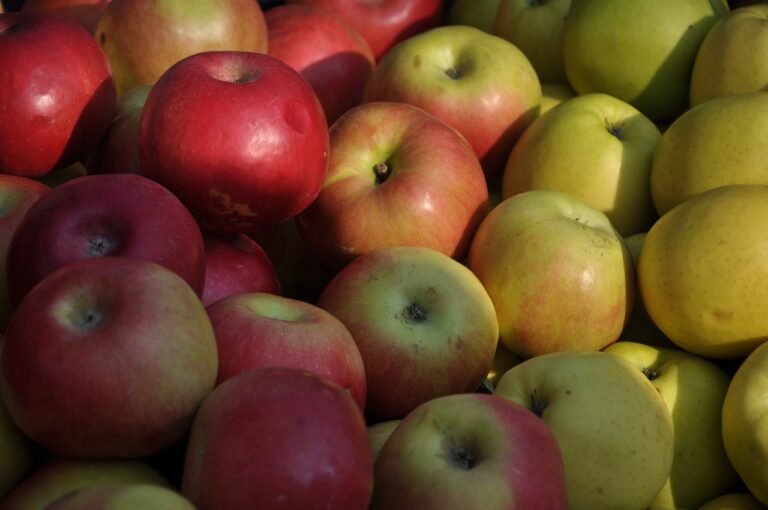How Grocery Stores Can Support Fair Trade Practices: Diamondexch999.com login, Skyexchange sign up, Ready book club login
diamondexch999.com login, skyexchange sign up, ready book club login: Grocery stores play a vital role in the food supply chain, connecting consumers with a wide range of products from around the world. As consumers become more conscious about where their food comes from and how it is produced, there is a growing demand for products that are sourced ethically and sustainably. Fair trade practices are one way to ensure that producers are paid fairly and that environmental and social standards are met. In this article, we will explore how grocery stores can support fair trade practices and why it is important to do so.
Why Fair Trade Matters
Fair trade is a movement that aims to create better trading conditions and promote sustainability by ensuring that producers in developing countries receive fair prices for their products. This helps to empower farmers and workers to improve their living and working conditions, invest in their communities, and protect the environment. By supporting fair trade practices, grocery stores can help to promote social justice and sustainability both locally and globally.
How Grocery Stores Can Support Fair Trade Practices
1. Stock Fair Trade Products: One of the most direct ways that grocery stores can support fair trade practices is by stocking products that are certified as fair trade. This includes items such as coffee, tea, chocolate, bananas, and sugar, as well as clothing and crafts. By offering a range of fair trade products, stores can give consumers more options to support ethical and sustainable practices.
2. Partner with Fair Trade Organizations: Grocery stores can also partner with fair trade organizations to ensure that the products they stock meet fair trade standards. By working with organizations such as Fair Trade USA or the Fairtrade Foundation, stores can access resources and support to source and promote fair trade products effectively.
3. Educate Consumers: Another important way that grocery stores can support fair trade practices is by educating consumers about the importance of buying fair trade products. This can include providing information in-store, such as signage and brochures, as well as hosting events and workshops on fair trade issues.
4. Promote Fair Trade Brands: Grocery stores can also promote fair trade brands and products through their marketing and advertising efforts. This can include highlighting the stories of fair trade producers, sharing information about fair trade certification, and showcasing the impact of fair trade practices on communities around the world.
5. Support Fair Trade Farmers: Grocery stores can also support fair trade farmers and producers by engaging in direct trade relationships. By working directly with fair trade cooperatives and organizations, stores can help to strengthen the connections between producers and consumers and ensure that fair trade principles are being upheld.
6. Advocate for Fair Trade Policies: Grocery stores can also advocate for fair trade policies at the local, national, and international levels. This can include supporting legislation that promotes fair trade practices, participating in fair trade campaigns, and engaging with policymakers to promote a more ethical and sustainable food system.
FAQs
1. What is fair trade certification?
Fair trade certification is a process by which products are verified to meet certain social, economic, and environmental standards. Products that are certified as fair trade are produced in accordance with these standards, which include fair prices for producers, safe and healthy working conditions, and environmental sustainability.
2. How can consumers support fair trade practices?
Consumers can support fair trade practices by purchasing products that are certified as fair trade, such as coffee, chocolate, and clothing. By choosing fair trade products, consumers can help to ensure that producers are paid fairly and that social and environmental standards are being met.
3. Are fair trade products more expensive?
Fair trade products may be slightly more expensive than conventional products, as the prices paid to producers are higher to ensure fair wages and working conditions. However, many consumers are willing to pay a premium for fair trade products in order to support ethical and sustainable practices.
4. How can I find fair trade products at my local grocery store?
Many grocery stores now carry a selection of fair trade products, which are often labeled with a fair trade certification logo. Consumers can also look for fair trade brands and products online, and can ask their local grocery store to stock more fair trade options if they are not currently available.
In conclusion, grocery stores have a unique opportunity to support fair trade practices and promote social justice and sustainability in the food supply chain. By stocking fair trade products, partnering with fair trade organizations, educating consumers, promoting fair trade brands, supporting fair trade farmers, and advocating for fair trade policies, grocery stores can help to create a more ethical and sustainable food system for all.







